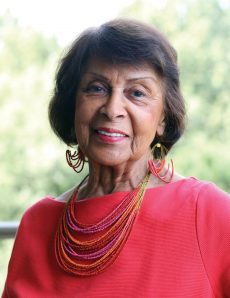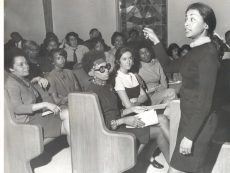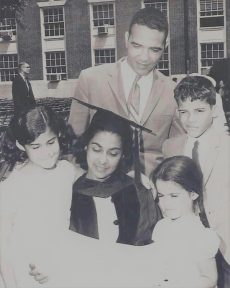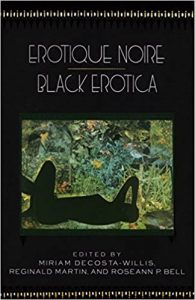This content is being reviewed in light of recent changes to federal guidance.
Women’s History Month Hidden Figure: A Special Tribute to Miriam DeCosta-Willis (1934-2021)
Categories: Obituaries, HBW
“Among her many professional friends and colleagues, we consider Miriam DeCosta-Willis the godmother of Afro-Hispanic Literature and culture. Her footprints and magnanimous contributions as a scholar-civil rights activist will forever be inspirational and trailblazing to those of us who regard her as one of Maya Angelou’s phenomenal women.” – Dr. James Davis, Associate Dean, Academic & Student Affairs & and the Humanities, Howard University

Miriam DeCosta-Willis passed away on Thursday, January 7, at the age of 86. A consummate scholar-activist, she was a writer and a college professor known for breaking down barriers. DeCosta-Willis lived a life filled with firsts, guided by her commitment to social justice inside and outside the college classroom.

Photo credit: Erika Sugarmon
Born on Nov. 1, 1934 in Florence, Alabama, DeCosta-Willis was raised in the South by her educator parents, Beautine and Frank DeCosta. Her family, especially her mother, played an important role in her upbringing as a strong-willed fighter. From a young age, she faced the challenges of being an African American in the South, however, she faced them head-on and fought for change. From organizing student protests during her time at Wilkinson High School to attending the Montgomery Bus Boycott with her mother, DeCosta-Willis’s values were instilled early in life.

In 1970 DeCosta-Willis joined the faculty of the then Department of Romance Languages and Literatures at Howard University and by 1974, she had become chair. Her most enduring legacy during her years at Howard was the establishment of doctoral programs in Romance Languages in French and Spanish. Under her leadership, Howard became the first HBCU to offer the Doctor of Philosophy in Romance Languages and remains a center for the study Romance languages throughout the Black Diaspora.
Her first work, Blacks in Hispanic Literature (1977), is a groundbreaking study of literary works by writers of Latin dissent in Africa and the Americas. Daughters of the Diaspora: Afra-Hispanic Writers (2003), was also a monumental addition to the field of Afro-Hispanic studies. “…the creative writing in Daughters of the Diaspora is spring-loaded: impassioned, forthright, and fresh, but also innovative, lyrical, and sensual. While there are dangers in grouping together this diverse collection of writers, their writing (much of it poetry) explores, among other themes: masking and identity, race and sexuality, colonialism and slavery, political commitment, national identity, and class.” -Douglas Field, African American Review 2004
DeCosta-Willis’s early work and countless scholarly articles she published provided a bridge between Latin American and Black Studies scholarship.
“Dr. Miriam DeCosta-Willis was a phenomenal scholar in the field of Afro-Hispanic Literature/Studies, especially on the works of Black Latin American female writers, many of whom did not get much publicity at the time they wrote and published in their own countries. In fact, she mentored many of us who emerged from graduate schools and began our careers during the mid- to late-1970s. It was through her that we made contacts with the above women writers, whom she interviewed in their countries and/or invited to conferences at our universities here in the United States. Dr. DeCosta-Willis’ many books and articles brought these authors to the attention of scholars globally and helped boost their careers. From time to time, she collaborated with us on edited volumes, so I worked very closely with her. For example, Dr. DeCosta-Willis solicited articles to publish Singular Like a Bird: The Art of Nancy Morejón (1998), Afro-Cuban poet, and Daughters of the Diaspora: Afra-Hispanic Writers (2003), which broadened the scope to include writers like Shirley Campbell (Costa Rica), Cristina Rodríguez Cabral (Uruguay) and Yvonne América-Truque (Colombia/Canada), among many others. It was truly exciting to work with her.” – Dr. Dellita Martin-Ogunsola, Professor Emeritus of Spanish, Department of Foreign Languages and Literatures, University of Alabama at Birmingham.

Over the course of a 40-year career in higher education, her influence was felt by students not only at Memphis State, and Howard, but also at LeMoyne-Owen College and George Mason University.
DeCosta-Willis’s focus on family was legendary. In 1955 she married Russell Sugarmon, a civil rights attorney. Together they had four children, Tarik, Elena, Erika, and Monique. DeCosta-Willis married to A.W. Willis Jr. in 1972, also a civil rights activist, who died of cancer in 1988. Following her retirement, DeCosta-Willis enjoyed speaking and continuing to write, centering her life around her four children, eight grandchildren, and seven great-grandchildren.
According to her former close colleague at Howard, James Davis, “We were always awestruck by her seemingly unending scholarly productivity while maintaining a ‘normal’ family life with her beloved offspring. Not only was she a brilliant scholar and writer, but she was also an endearing mentor to so many.”
One of the fastest growing fields today is Afro-Hispanic and Afro-Latinx [Latin American] Studies, but we know only pieces of a larger origin story. Like many hidden and forgotten narratives, DeCosta Willis’s story is one of them.
Selected Publications by Miriam DeCosta-Willis
Blacks in Hispanic Literature: Critical Essays. Port Washington, NY: Kennikat Press, 1977.
Érotique Noire/Black Erotica. New York: Anchor Books, 1992.
Notable Black Memphians. Amherst, NY: Cambria Press, 2008.
Homespun Images: An Anthology of Black Memphis Writers and Artists, Miriam DeCosta Willis, Fannie Delk, and Philip Dotson (eds.). LeMoyne-Own College, 1989
“Can(n)on Fodder: Afro-Hispanic Literature, Heretical Texts, and the Polemics of Canon Formation,” Afro-Hispanic Review, April 2002, Vol. 21 (1/2), pp. 53-62.
“Martha K. Cobb and the Shaping of Afro-Hispanic Literary Criticism,” CLA Journal, Vol. 45 (4), June 2002, pp. 523-541.
“Meditations on History: The Middle Passage in the Afro-Hispanic Literary Imagination,”
Afro-Hispanic Review, April 2003, Vol 22 (1), pp. 3-12.
More on DeCosta-Willis
Memphis Civil Rights Activist Miriam DeCosta-Willis dies at 86